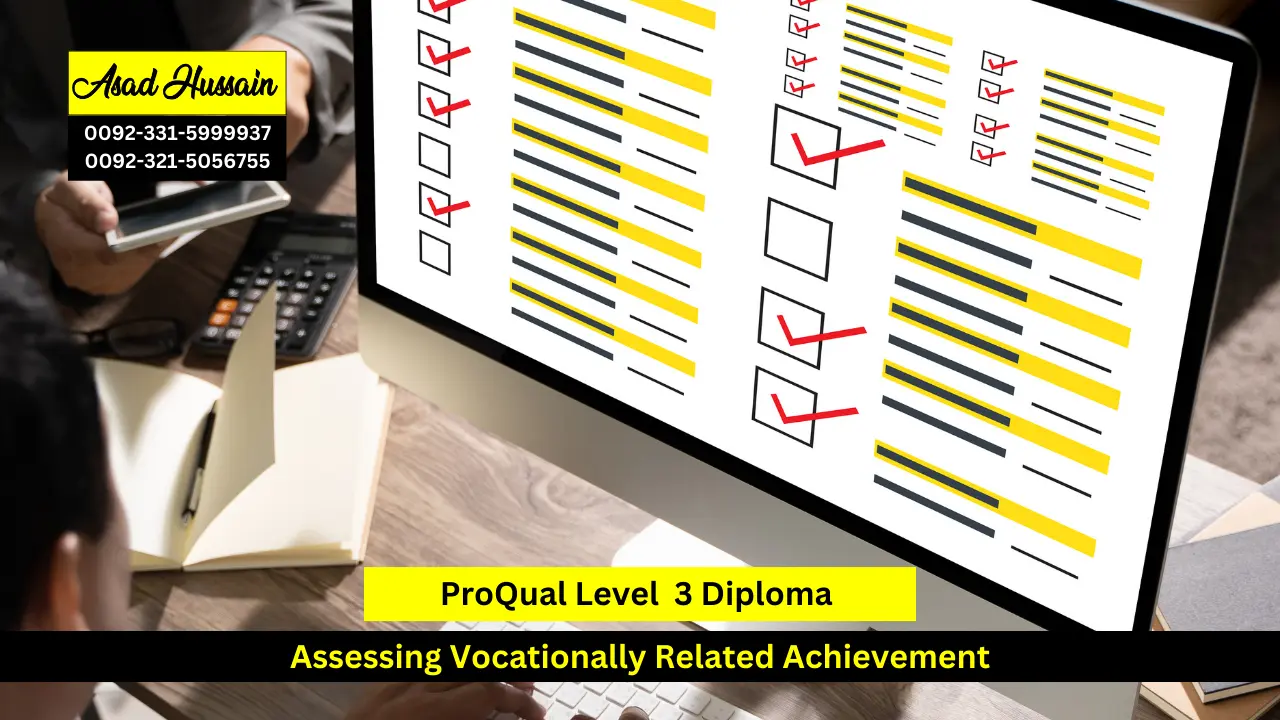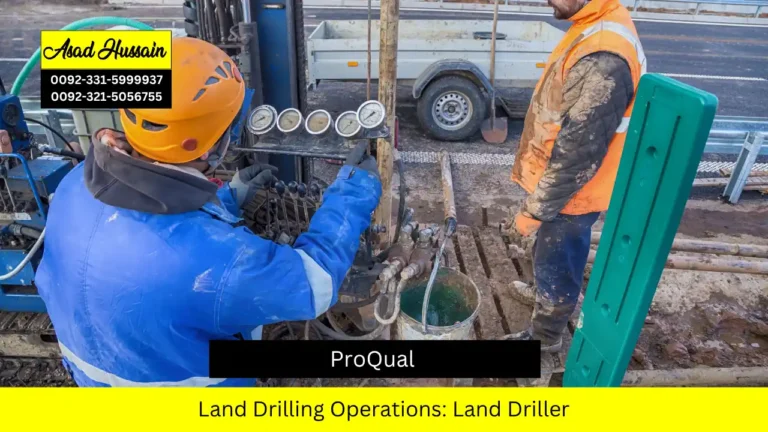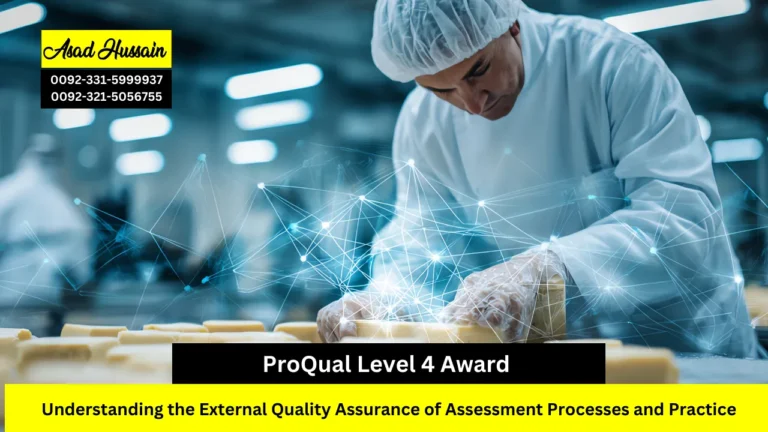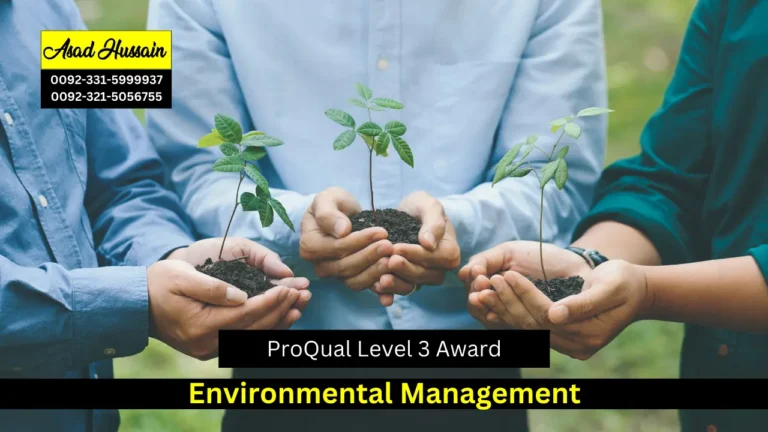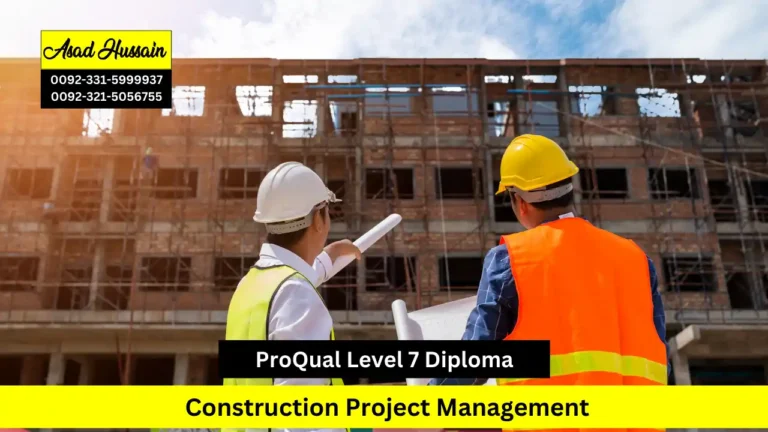The ProQual Level 3 Award in Assessing Vocationally Related Achievement is a focused assessment qualification designed for individuals who assess vocational knowledge and understanding in classroom, workshop, or training environments. This programme equips learners with the essential principles and practices of assessment, including planning assessment activities, designing appropriate assessment materials, and providing constructive feedback to candidates. The curriculum covers key areas such as understanding assessment methods, involving learners in the assessment process, and maintaining accurate records of assessment decisions. Successful completion confirms that an individual possesses the expertise to assess vocationally related achievement outside of real work environments.
This qualification places strong emphasis on developing the professional judgement required to make valid and reliable assessment decisions within educational and training settings. Participants will explore topics including standardisation practices, quality assurance requirements, and the management of assessment appeals. The content is designed to build confidence in using a range of assessment methods suitable for vocational knowledge, including written tests, assignments, projects, and professional discussions. Assessment is conducted through portfolio building, allowing candidates to demonstrate their competence through designed assessment materials, feedback records, and reflective accounts that capture their development as assessment practitioners.
The ProQual Level 3 Award in Assessing Vocationally Related Achievement is specifically designed for those who assess vocational knowledge in colleges, training centres, and private provider settings. Upon achievement, learners may choose to pursue further certifications in assessing competence in the work environment or internal quality assurance, as well as advanced diplomas that explore external quality assurance and centre management responsibilities. This Award stands alone as a valuable credential for trainers, teachers, and vocational instructors who require a recognised assessment qualification to validate their practice and enhance their professional standing within education and training environments.
Program Highlights
ProQual Level 3 Award in Assessing Vocationally Related Achievement consists of 2 mandatory units having 54 GLH and 90 Hours TQT. Candidates must complete all of the following Mandatory units.
Mandatory Units
| Sr# | Unit Title | Unit Level | GLH |
|---|---|---|---|
| 1 | Understanding the principles and practices of assessment | 3 | 24 |
| 2 | Assess vocational skills, knowledge and understanding | 3 | 30 |
Entry Requirements
The entry requirements for this qualification are designed to ensure that learners possess the necessary foundation and professional readiness to assess vocational knowledge within educational or training environments and successfully complete the assessment activities required within the programme.
- Age Requirements: Learners must be at least 19 years of age. This minimum age reflects the level of professional maturity, occupational credibility, and judgement required to make valid and reliable assessment decisions that impact learners and organisational standards.
- Educational Background: Learners should hold a relevant vocational qualification at or above the level they wish to assess. This may include diplomas or certificates in their occupational specialism, such as Level 3 Diplomas in Health and Social Care, Business Administration, Customer Service, Hairdressing, Construction, or Engineering. Related teaching or training certifications, such as the Level 3 Award in Education and Training or Level 4 Certificate in Education and Training, also provide a useful foundation for this assessing qualification.
- Language Proficiency: Learners must possess a strong command of written and spoken English, as the role requires clear communication of assessment feedback, completion of detailed assessment records, and interpretation of qualification standards. A minimum equivalent to GCSE grade C/4 in English is strongly recommended.
- Work experience: is an essential requirement for this qualification. Learners must have access to at least two candidates whose vocationally related achievement they can assess within a classroom, workshop, or training environment. This necessitates current occupational competence and sufficient industry experience to make credible judgements against national occupational standards within their chosen vocational specialism.
These entry criteria ensure that every learner embarking upon this qualification possesses the vocational credibility and professional readiness required to become a competent and confident assessor of vocationally related achievement. Whether you already hold related teaching diplomas, advanced vocational certificates, or significant industry experience within training environments, this programme demands a genuine commitment to upholding assessment standards and supporting others to achieve their full potential. It is designed for experienced practitioners and trainers ready to step into the rewarding role of assessing vocational knowledge and understanding within educational settings.
Learning Outcomes
Upon completing the Level 3 Award in Assessing Vocationally Related Achievement, learners will be able to:
- Understand the legal and ethical considerations that apply to assessment in a vocational context, including the need to ensure that assessments are fair, reliable, and valid.
- Understand the principles and practices of assessment in a vocational context, including the different assessment methods available and the importance of feedback and record-keeping.
- Understand the roles and responsibilities of an assessor in a vocational context, including the importance of maintaining objectivity and confidentiality throughout the assessment process.
- Plan and prepare for effective assessment in a vocational context, including the need to use a range of assessment methods to meet the needs of different learners.
- Carry out assessments in a vocational context, including observing and questioning learners, using product evidence, and giving feedback to learners.
- Evaluate and improve own assessment practice, including identifying areas for improvement and updating knowledge and skills in line with industry standards and best practices.
- Understand the requirements for quality assurance of assessment in a vocational context, including the role of internal and external quality assurance processes.
Target Audiences
The ProQual Level 3 Award in Assessing Vocationally Related Achievement is designed for individuals who assess vocational knowledge, understanding, and skills within classroom, workshop, or training environments rather than in real work settings. This qualification is ideal for trainers, teachers, and vocational instructors who require a formal assessing qualification to validate their practice and enhance their professional credibility. It is suitable for those who design and deliver vocational programmes and need to make accurate, fair, and consistent assessment decisions against national occupational standards.
- Vocational Trainers and Instructors – Individuals delivering vocational programmes within further education colleges, private training providers, or employer academies who need to assess their learners’ knowledge and understanding through written tests, assignments, projects, and professional discussions.
- Teachers in Vocational Subjects – Educators working in school sixth forms, specialist colleges, or adult education centres who teach vocationally related courses and require a recognised assessment qualification to support their grading and feedback practices.
- Workplace Trainers without Assessor Status – Those responsible for delivering off-the-job training within apprenticeship programmes or corporate learning environments who wish to formalise their approach to assessing knowledge and theoretical understanding.
- Holders of Related Teaching Qualifications – Learners who have completed certifications such as the Level 3 Award in Education and Training or Level 4 Certificate in Education and Training and now require a dedicated assessment qualification to complement their teaching practice.
- Career Changers with Vocational Expertise – Experienced professionals transitioning from industry roles into training positions who possess significant occupational knowledge and require formal assessment training to validate learner achievement.
- Individuals with Relevant Diplomas or Certificates – Learners who already hold vocational qualifications at Level 3 or above within their specialist area, such as diplomas in health and social care, business administration, construction, engineering, or hair and beauty, and wish to build upon this foundation with a recognised assessment credential.
This qualification is for the vocational trainer who marks assignments, the college lecturer who grades practical projects, and the workplace instructor who tests theoretical understanding. It is for those who already know their subject but now seek to master the art of fairly and consistently judging the knowledge of others. Whether you hold teaching certifications, advanced vocational diplomas, or simply possess years of industry experience now being shared with learners, this Award welcomes those who are ready to assess with confidence, integrity, and professional pride. It is the perfect qualification for anyone whose assessment practice takes place within the training room rather than the workplace floor.

